Regulation
Defense Denies COPA Injunction In Satoshi Nakamoto Case

In a packed courtroom on June 7, 2024, Craig Steven Wright (CSW) faced a hearing to address potential injunctions and orders following his defeat in several legal battles. Representing the Cryptocurrency Open Patent Alliance (COPA), Jonathan Hough KC outlined the structure of the hearing. It included the COPA claim, the BTC Core claim, the Coinbase claim, and the Tulip Trading claim.
Hough KC Argues For Injunction Against CSW
Hough KC highlighted the immense costs and personal consequences resulting from CSW’s actions. Moreover, he noted that unraveling Wright’s lies cost over 10 million pounds. Furthermore, he detailed the severe personal toll on Peter McCormack and Hodlonaut, two prominent figures, who opposed Wright’s claims.
COPA’s Hough KC highlighted that McCormack suffered stress-induced cardiac issues and hospitalizations, while Hodlonaut faced surveillance. In addition, Hodlonaut also witnessed threats, and had to leave his teaching job, which impacted his six-year-old daughter.
“Their lives were upended by CSW and Ayre’s actions,” Hough KC emphasized. In addition, he cited threatening messages they received. These included one where Calvin Ayre suggested, “judge only needs one troll to pass judgment… just waiting for a volunteer to bankrupt themselves trying to prove a negative.”
Moreover, COPA’s draft order proposed that CSW “shall not pursue proceedings.” They aim to prevent Wright from reasserting his claim to be Satoshi Nakamoto in any legal setting globally.
Meanwhile, CSW’s legal team, led by Craig Orr KC, sought to amend “pursue” to “commence” to allow Wright the ability to defend himself. Hough KC argued that this amendment left a loophole. This risks a scenario where a friendly party could sue Wright to revisit the issue.
Also Read: Why SEC Is Unlikely To Target Roaring Kitty As He Exploits Regulatory Loophole
Legal Team Of Craig Steven Wright Counters Injunction
Orr KC countered, invoking Wright’s right to free speech under Article 10 of the Human Rights Act. He stated that CSW believes he is Satoshi, and under Article 10, he should be able to claim he is Satoshi. Hough KC responded that the court had already found that Wright knowingly lied about being Satoshi.
Furthermore, he clarified that the draft order wouldn’t prevent Wright from making such claims in private, only in public forums. The debate extended to the removal of Wright’s previous claims from public records, which is deemed an impossible and overly burdensome task.
Hough KC acknowledged the challenge but suggested it would be less burdensome than the harm inflicted on McCormack and Hodlonaut. COPA sought to compel Wright to post the court’s findings on Twitter, Slack, his website, and in The Times newspaper, with these posts remaining for six months.
Additionally, they requested the referral of Wright, Stefen Matthews, and Robert Jenkins for potential criminal proceedings, citing extensive evidence of perjury and document forgery. However, Orr KC argued that the court’s findings had already been widely publicized in major outlets like the Financial Times and the New York Times.
He criticized COPA’s motives, asserting, “COPA seeks wide-ranging orders to stop CSW re-litigating. COPA is motivated by a desire for revenge and a desire to punish and humiliate CSW. That is not legitimate.” Wright’s attorney further contended that COPA had not suffered any direct harm.
He stated, “COPA is not Satoshi, COPA did not assert IP rights. None of COPA’s IP rights have been violated. COPA has not been defamed, the same applies to the developers.” Orr KC described the relief sought by COPA as “very wide-ranging, novel, and unprecedented.”
Also ReD: Binance Fights to Reduce Size of $13 Billion UK Lawsuit Over BSV Delisting
The presented content may include the personal opinion of the author and is subject to market condition. Do your market research before investing in cryptocurrencies. The author or the publication does not hold any responsibility for your personal financial loss.
Regulation
“Crypto Dad” Chris Giancarlo Emerges Top For White House Crypto Czar Role
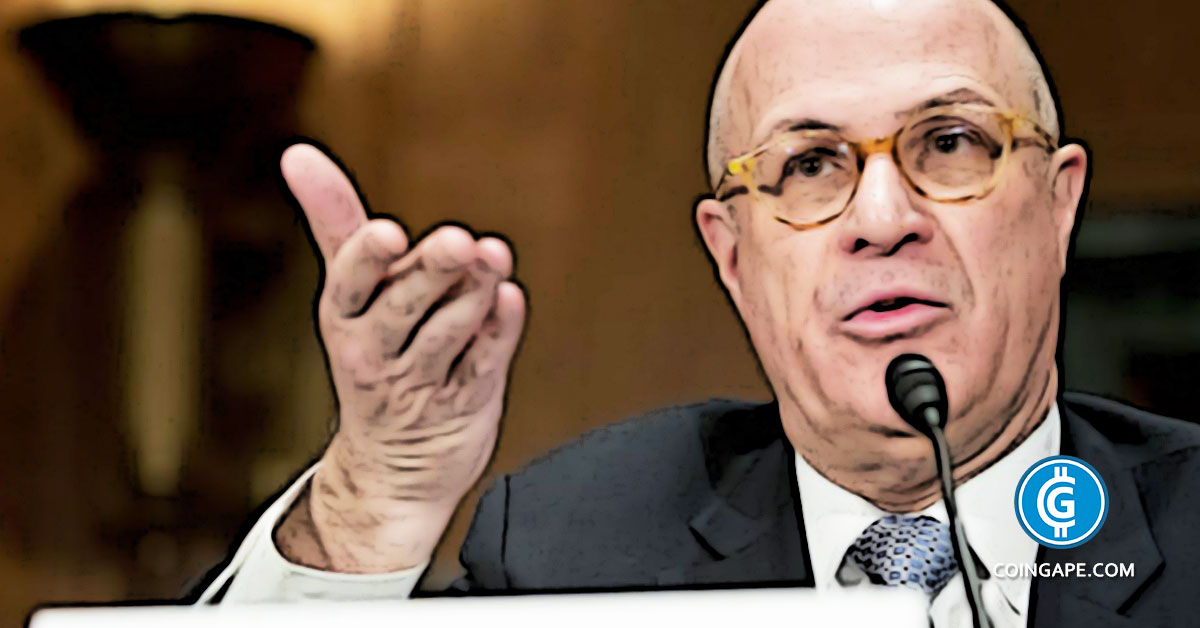
Chris Giancarlo, widely known as “Crypto Dad,” has emerged as the leading candidate for a newly proposed role of crypto czar in the White House under President-elect Donald Trump’s administration. The potential appointment underscores a strategic effort to advance crypto regulations and foster blockchain innovation in the United States.
This proposed position would be the first of its kind in the White House, aiming to bring clarity to the growing $3 trillion digital asset market. Chris Giancarlo, the former Chair of the Commodity Futures Trading Commission (CFTC), is known for his progressive approach to digital currencies and blockchain technologies.
Chris Giancarlo Leads Race for White House Crypto Czar Role Under Donald Trump
According to a Fox Business report, Chris Giancarlo is the top contender for the position of White House crypto czar, a role being considered by the Trump transition team to streamline crypto regulations and foster blockchain development.
As CFTC Chair from 2017 to 2019, Chris Giancarlo oversaw critical advancements in the digital asset space. This includes the launch of the first Bitcoin futures. He later co-founded the Digital Dollar Project, a nonprofit initiative exploring the potential of a U.S. central bank digital currency (CBDC). Giancarlo’s regulatory expertise and understanding of digital innovation position him as a key figure in shaping the future of the crypto sector.
The Trump administration aims to utilize this position to address industry concerns over the Biden administration’s perceived heavy-handed enforcement. The crypto czar would also collaborate with federal agencies to establish a framework for the $180 billion stablecoin market and enhance the overall regulatory landscape for blockchain and digital currencies.
Trump’s Strategic Approach to Digital Asset Policy
President-elect Donald Trump has expressed plans to make the U.S. a global leader in cryptocurrency and blockchain innovation. Part of this strategy includes appointing a crypto czar to advance policies to support the industry’s growth.
Trump has also proposed the establishment of a presidential crypto advisory council to address ongoing regulatory challenges. This initiative aims to align federal policies with industry needs, fostering a competitive environment for blockchain businesses. The council will explore the creation of a Bitcoin reserve as part of the administration’s broader crypto policy agenda.
The transition comes as current SEC Chair Gary Gensler announced his resignation effective January 20, 2025, coinciding with Trump’s inauguration. Gensler faced criticism during his tenure for his enforcement-driven approach to crypto regulations.
Amid speculation, Chris Giancarlo clarified that he is not pursuing the SEC Chair role. Giancarlo said in a recent statement,
“I’ve already cleaned up earlier Gary Gensler mess at the CFTC and don’t want to have to do it again.”
His focus remains on advancing crypto-friendly policies through a potential new role. According to the report, the “Crypto Dad” stated,
“I would be honored to be considered for the role.”
The creation of the crypto czar position could mark a pivotal moment in the evolution of U.S. crypto policy. With Chris Giancarlo leading the race, the industry anticipates advancements in crypto regulations under the new administration.
Disclaimer: The presented content may include the personal opinion of the author and is subject to market condition. Do your market research before investing in cryptocurrencies. The author or the publication does not hold any responsibility for your personal financial loss.
Regulation
UK to unveil crypto and stablecoin regulatory framework early next year


- The UK will introduce unified crypto regulations, including stablecoins, in early 2025.
- New rules aim to simplify oversight and avoid restrictive staking classifications.
- Labour government aims to compete with EU’s MiCA rules and US pro-crypto policies.
The United Kingdom is set to introduce a comprehensive regulatory framework for cryptocurrencies, stablecoins, and crypto staking services in early 2025, marking a pivotal shift in its approach to digital assets.
The announcement was made by the Economic Secretary to the Treasury Tulip Siddiq at City & Financial Global’s Tokenisation Summit in London on November 21.
Initially slated for December 2024, the regulatory rollout was delayed due to the change in government following the election of Prime Minister Keir Starmer’s Labour administration in July 2024.
The upcoming UK crypto regulatory framework
The upcoming framework consolidates regulations for crypto assets into a single, overarching regime, a decision Siddiq described as “simpler and more logical.”
The framework aims to provide clarity in a rapidly growing sector that has faced uncertainty in the UK.
Stablecoins will receive distinct treatment under these regulations, as their functionality does not align with existing payment services rules.
Siddiq highlighted that staking services would also avoid being designated as “collective investment schemes,” a classification that could impose burdensome restrictions.
UK aims to align with the global crypto regulatory landscape
The UK government’s renewed focus on digital asset regulation comes as it seeks to align with global developments. The European Union’s Markets in Crypto-Assets (MiCA) regulations will be fully enforced by the end of 2024, offering regulatory certainty that has positioned Europe as an attractive market for the crypto industry.
Meanwhile, the US, under President Donald Trump’s administration, has adopted a markedly pro-crypto stance, including the establishment of a White House “crypto czar” and SEC Chair Gary Gensler’s planned departure in January 2024.
The Labour government has shown its intent to catch up with international competition. In September 2024, it introduced a bill recognizing NFTs, cryptocurrencies, and carbon credits as property.
The new regulatory push reflects the UK’s ambition to regain credibility as a crypto hub while addressing criticisms of the Financial Conduct Authority’s perceived stringent oversight.
By delivering a robust, streamlined framework, the Labour government aims to bolster the UK’s standing in the multibillion-dollar crypto industry.
Regulation
Gary Gensler To Step Down As US SEC Chair In January
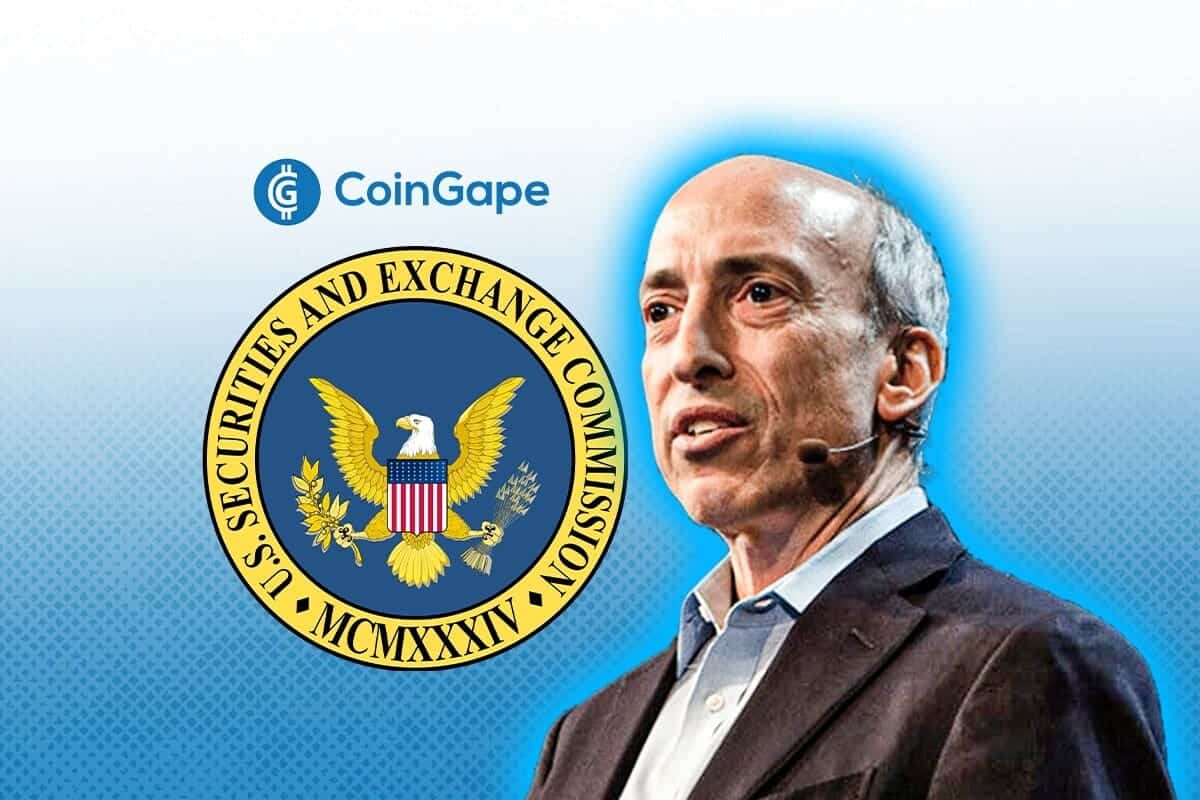
In a recent development, the US Securities and Exchange Commission (SEC) announced that Gary Gensler will step down from his position next year. This follows calls for Gensler to resign since Donald Trump won the US presidential elections.
Gary Gensler To Step Down As US SEC Chair
The US SEC announced in a press release that Gary Gensler will depart the Agency on January 20, 2025. The US SEC Chair also confirmed this development in an X post. Interestingly, this comes on the same day that Donald Trump will be inaugurated as the 47th president of the United States.
Following the announcement, Gensler also used the opportunity to reflect on his time at the Commission. He remarked that it has been an “honor of a lifetime” to serve alongside those at the SEC. He also thanked President Biden for the opportunity to serve in the position. Gensler has been the US SEC Chair since April 2021. During his time, he has spearheaded several litigations against the crypto industry.
This includes the long-running legal battle with Ripple, which Gensler took over from his predecessor Jay Clayton, which bordered on whether XRP was a security. Up till now, the Agency continues to reiterate this ‘digital asset securities’ claim.
Disclaimer: The presented content may include the personal opinion of the author and is subject to market condition. Do your market research before investing in cryptocurrencies. The author or the publication does not hold any responsibility for your personal financial loss.
-

 Market24 hours ago
Market24 hours agoSouth Korea Unveils North Korea’s Role in Upbit Hack
-

 Bitcoin19 hours ago
Bitcoin19 hours agoMarathon Digital Raises $1B to Expand Bitcoin Holdings
-

 Regulation13 hours ago
Regulation13 hours agoUK to unveil crypto and stablecoin regulatory framework early next year
-

 Market18 hours ago
Market18 hours agoETH/BTC Ratio Plummets to 42-Month Low Amid Bitcoin Surge
-

 Market17 hours ago
Market17 hours agoSEC Moves Toward Solana ETF Approval Amid Pro-Crypto Shift
-
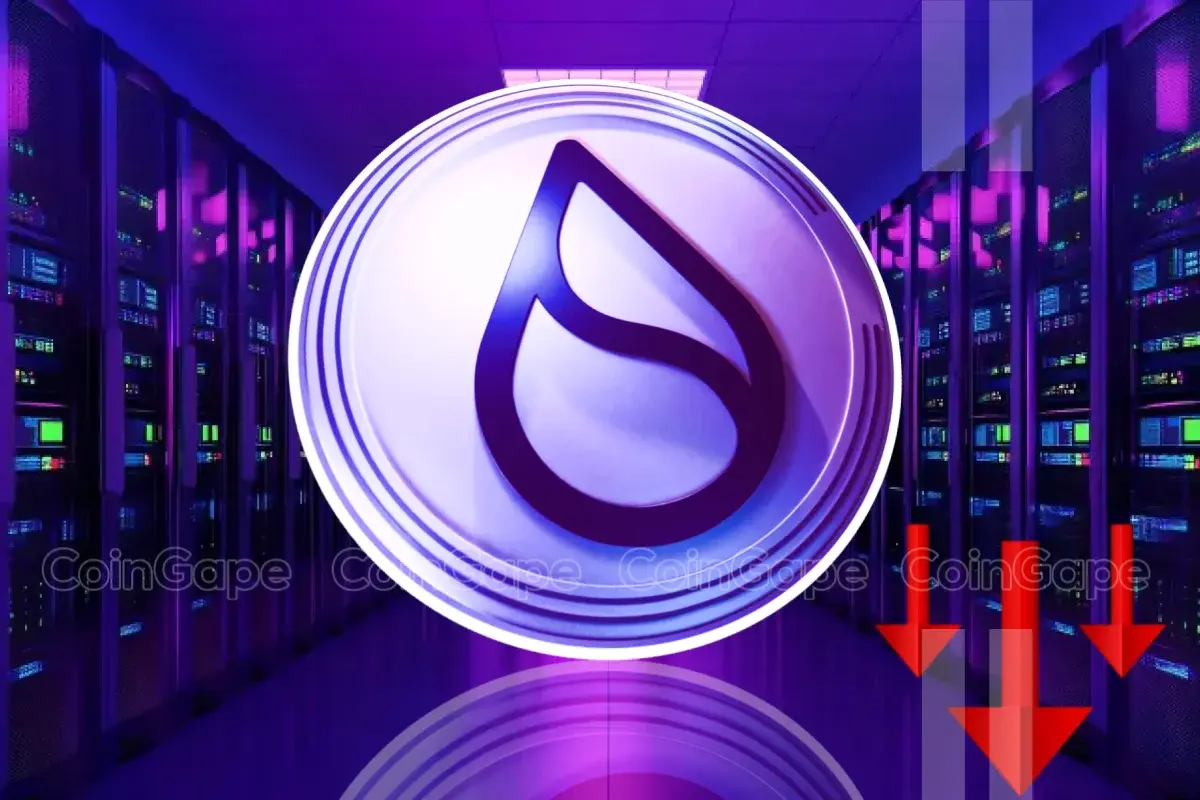
 Altcoin22 hours ago
Altcoin22 hours agoSui Network Back Online After 2-Hour Outage, Price Slips
-

 Altcoin21 hours ago
Altcoin21 hours agoDogecoin Whale Accumulation Sparks Optimism, DOGE To Rally 9000% Ahead?
-

 Altcoin24 hours ago
Altcoin24 hours agoVitalik Buterin, Coinbase’s Jesse Pollack Buy Super Anon (ANON) Tokens On Base







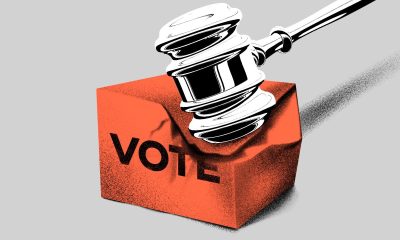



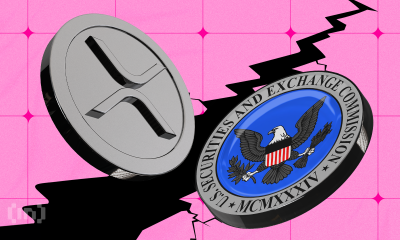













✓ Share: